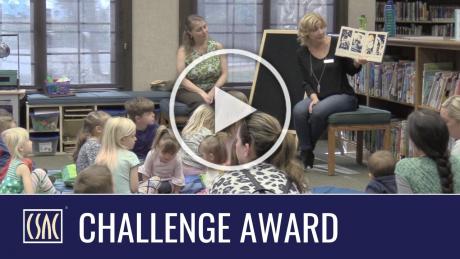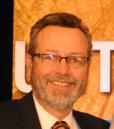El Dorado County Collaboration Brings Services to Where Residents Gather
CSAC is spotlighting this 2019 Challenge Award program which was in place prior to the COVID-19 pandemic.
In rural counties, accessing services can often be a challenge due to distance or transportation issues. Take El Dorado County, for instance. It’s an 80-mile stretch from El Dorado Hills to South Lake Tahoe, with numerous small, isolated communities well off the beaten path of Interstate 50, which traverses the County.
While a variety of County agencies offer prevention and early intervention services, families can face barriers accessing them due to lack of knowledge and/or transportation. Overcoming these barriers was especially important in El Dorado County, which exceeds state averages in measures of behavioral health, substance abuse and family violence, which can often lead to adverse childhood experiences (ACEs).
Staff set out to find a solution to this challenge. The answer: the creation of Community Hubs, a successful program that’s the result of a strong collaboration between the El Dorado County Health and Human Services Agency, First 5 El Dorado Commission, County Library and County Office of Education.
“We decided as a partnership that we would come together and really try to combine efforts to have that collective impact approach so we could work to decrease ACEs in our community by building resiliency,” says Lynnan Svensson, Program Manager for Public Health Nurse in the County’s Health and Human Services.
“In order to make sure all families have equal access to services, we had to rethink our service-delivery system,” adds Kathleen Guerrero, Executive Director of the First 5 El Dorado Commission. “How could we change the system so we can get prevention services out so families can access them before a crisis?”
There are five Community Hubs in the county – one in each supervisorial district. The Hubs are located at a branch of the county library; at times, though, Hub activities are held at other locations such as a school, church or park – places that families naturally gather, which allows for greater participation.
At each Hub you will find a multi-disciplinary team consisting of a public health nurse, community health advocate, family engagement specialist and early childhood literacy specialist. The teams offer a variety of activities at set times that promote early literacy, child development, parenting and preventative health activities. The free programs are available to children up to 18 years old – as well as their caregivers.
Toddlers enjoy sessions such as “learn and play” or “early literacy storytime.” They begin to learn valuable skills without even realizing it. As for their caregivers, the sessions present opportunities to socialize and spend time with other adults. This is critical for a parent or caregiver who might otherwise feel isolated at home with the kids all day.
Trained Hub team members work to build relationships and establish trust; if needed, they encourage parents or caregivers to seek support before a crisis. Families with more complex needs are offered individualized support and can be referred to a public health nurse for home visits and case management.
“We get more and more referrals every year for our public health nurses and community health advocates to really go out and make sure we are attending to all the health needs of our families,” says Svensson. “And that’s not just physical health; that’s mental health, that’s also environmental health. We are really making sure we are integrating all systems of care.”
The four-year-old program is increasingly popular. In just 2019, it reached more than 6,500 children and adults. But beyond metrics, families regularly share how the program has helped in a number of ways, providing them with the support and guiding them to needed services.
“It’s really a family place here. We just love it and feel completely at home here,” explains Amanda Zaldivar, who adds how much the programs are helping her four young children with their development. “I feel inspired here … and utilize different things I have seen in the programs here at home. I just think it’s amazing.”
Amanda adds that when she and her family moved to El Dorado County from out of state, she knew no one in the area. The Hub played a key role in helping her – and her children – build friendships.
Grandmother Carol McGinity is also a regular participant. “For me as a grandparent I am learning so much from the program.” She remarks how her granddaughter is learning her skills very quickly, from tying her shoes to talking and making eye contact with adults. “She’s really excelled in all her social skills.”
Each year, First 5 El Dorado’s evaluation team prepares a Community Hubs Profile Report, which is used as a guide to look for ways to improve the program. These profiles contain a wide range of information not only on the individual Hub, but also on the demographics of the people who live in each Hub’s region. This allows programs within each Hub to be tailored to the diverse communities.
“Community Hubs could not exist without many agencies pointing in the same direction,” Guerrero concludes. “It takes everyone coming together with the same vision, the same commitment and being willing to open up their purse strings to say we can do this together and we can go further than we can alone.
To learn about how to enter the 2020 CSAC Challenge Awards, click here. The entry deadline is Sept. 11, 2020.









































